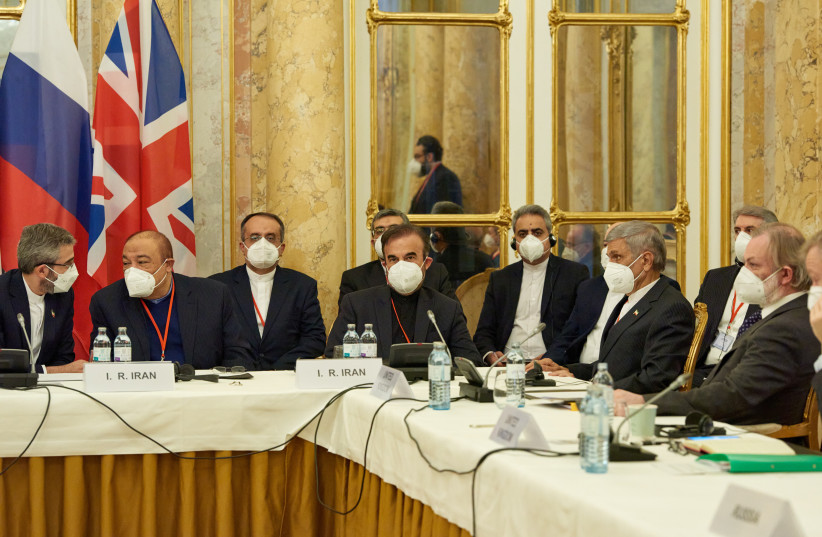Indirect US-Iranian talks on saving the 2015 Iran nuclear deal will resume on Thursday in Vienna, Iranian news agencies reported on Tuesday.
"We will continue the talks on Thursday ... and await practical steps by the West," Iran's top negotiator Ali Bagheri Kani was quoted as telling Iranian media during a visit to Moscow by the semi-official news agency ISNA.
Tasnim news agency earlier said Bagheri Kani finalized the date of the resumption of the talks after contacting European Union coordinator Enrique Mora.
The talks broke off on Friday as European officials voiced dismay at sweeping demands by Iran's new, hardline government. read more
The seventh round of talks in Vienna is the first with delegates sent by Iran's anti-Western President Ebrahim Raisi on how to resuscitate the agreement under which Iran limited its nuclear program in return for relief from economic sanctions.

However, last week's discussions broke off with European and US officials voicing dismay at sweeping demands by Iran's new, hardline government under anti-Western President Ebrahim Raisi, whose June election caused a five-month pause in the talks.
A senior US official on Saturday said Iran abandoned any compromises it had made in the previous six rounds of talks, pocketed those made by others, and demanded more last week.
Each side appears to be trying to blame the other for the lack of progress.
US National Security Adviser Jake Sullivan said the presidents of the United States and Russia - two of the six major powers in the deal along with Britain, China, France, and Germany - had a "productive" discussion about Iran on Tuesday.
"The more Iran demonstrates a lack of seriousness at the negotiating table, the more unity there is among the P5+1 and the more they will be exposed as the isolated party in this negotiation," he told reporters, referring to the six powers.
Speaking on Monday, Central Intelligence Agency Director Bill Burns said the agency does not believe Iran's supreme leader has decided to take steps to "weaponize" a nuclear device but noted that it has made advances in its ability to enrich uranium, one pathway to the fissile material for a bomb.
Iran denies seeking nuclear weapons, saying it only wants to master nuclear technology for peaceful purposes.
"We don't see any evidence as an agency right now that Iran's supreme leader has made a decision to move to weaponize," Burns told the Wall Street Journal's CEO Council Summit.
Burns described Iran's challenge as "a three-legged race" to obtain fissile material, to "weaponize" by placing such material into a device designed to cause a nuclear explosion, and to mate it to a delivery system such as a ballistic missile.
On weaponization, Burns said "the Iranians still have a lot of work to do there as far as we judge it."
